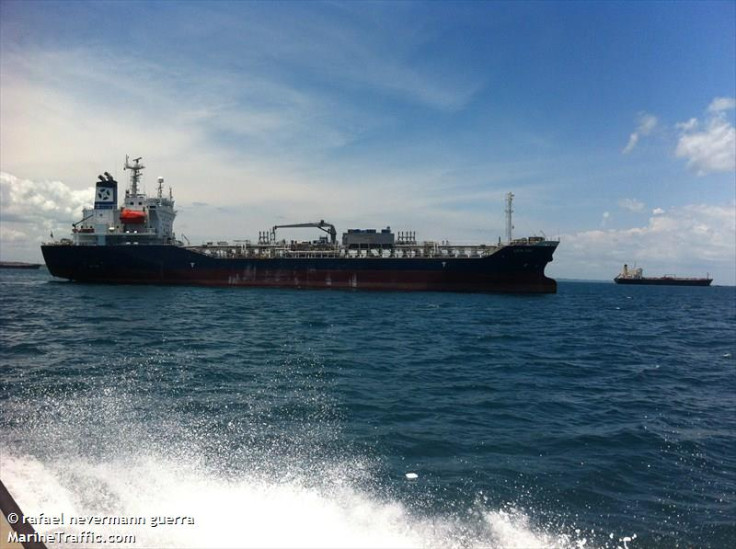MT Leon Dias hijacking: Nationality of five hostages disclosed as Biafran link is 'highly unlikely'

The nationality of five seamen held hostage by suspected militants from the Niger Delta, southern Nigeria, has been disclosed. The five men were taken by the militants after the Greek-owned MT Leon Dias, which flies a Liberian flag, was hijacked near Brass, Nigeria on 29 January.
The attackers left the ship with five hostages on 31 January. "The captain and the third engineer are Filipino, the chief engineer and the electrician are Russian, and the fitter is Georgian," Dirk Steffen, director of Maritime Security at Copenhagen-based Risk Intelligence, told IBTimes UK.
"The attackers reportedly left the ship at 06.00 on 31 January 2016 and the vessel proceeded to the Cotonou Port anchorage , Benin, for shelter and arrived at midday on 1 February. The second officer has been reported as injured but this has not been verified."
Quoting Maria Zakharova, spokesperson for the Russian ministry of foreign affairs, the Russian embassy told IBTimes UK: "Russian diplomats are actively engaged. Our duty is to help Russian citizens. We are doing and will do all we can".
IBtimes UK has also contacted the Filipino and Georgian embassies as well as the ship owner, Leon Shipping and Trading in Greece, for a comment, but has not received a response.
Biafran link unlikely
After hijacking the ship, the attackers warned they would blow up the tanker unless the Nigerian government released the leader of the Indigenous People of Biafra (Ipob) Nnamdi Kanu within 31 days.
Shortly after, pro-Biafran groups – which call for the independence of the territories forcibly annexed to Nigeria during the British colonisation, ended in 1960 – distanced themselves from the hijacking, stressing they are not involved in criminal activities.
The Nigerian military confirmed the hijackers were not Biafran separatists, while Uchenna Madu, one of the Movement for the Actualization of a Sovereign State of Biafra (Massob) leaders, was also quoted as saying: "Some Niger Delta militants have shown interest in working with us." However, Steffen believes that an economic motive – such as ransom payment – is more likely to be behind the hijacking of the ship, which was already attacked in 2013.
"The Ipob story is most likely a cover to provide 'legitimacy' to this act, a practice that was also adopted by many militants-turned-criminals (and vice versa) during the Movement for the Emancipation of the Niger Delta (Mend) insurgency between 2006 and 2009," he said. "The Biafran struggle also lacks a maritime dimension, so even as a 'publicity' vehicle, this act would not appear consistent."
The intelligence expert also added Mefor's statement might not be taken seriously among some members of the pro-Biafranm struggle who consider the leader as a "renegade within Massob". Steffen added that similar attacks are likely to happen closer to the shore around Brass, in the Niger Delta, due to political changes in Nigeria and the fact that "many government contracts and rackets used to fund the ex-militants are being wound down by the Nigerian government."
© Copyright IBTimes 2025. All rights reserved.






















